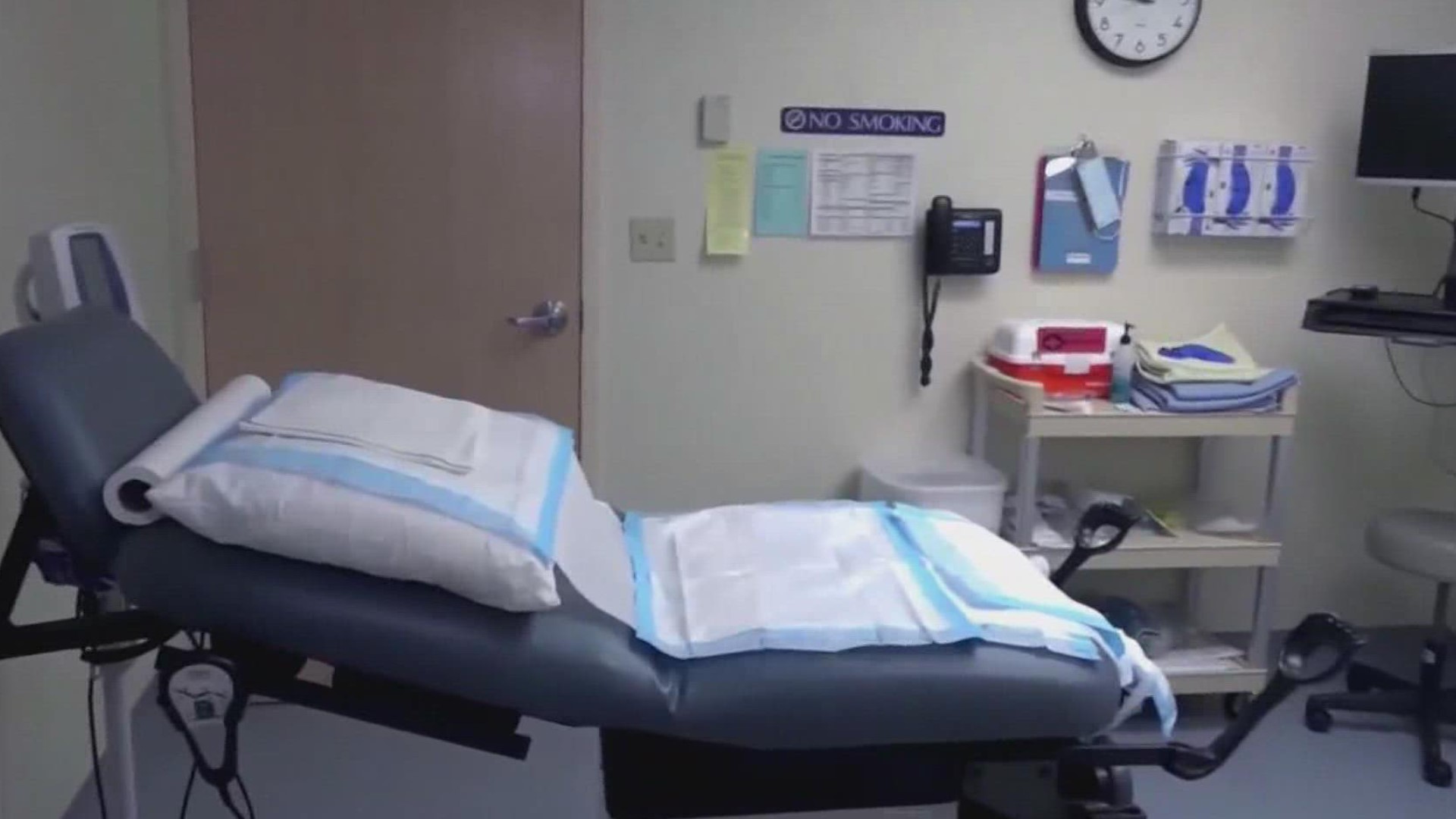TALLAHASSEE, Fla. — A bill to ban abortions at 15 weeks in Florida now heads to the Senate.
While it will take months for the bill to become law if approved, one Bay area clinic is already considering changes in anticipation of its passing.
Dr. Kristen Whitkowski of Gentle Hands OBGYN said, "We are going to have to change a lot of things in the office in terms of how we counsel patients in terms of prenatal testing."
Dr. Whitkowski says the 15-week ban would present a race against the clock to have genetic testing performed.
That's because 10 weeks is when a fetus may be screened for chromosomal abnormalities. If something is abnormal, it's at 15 weeks that a second more intrusive test which would confirm any abnormalities happens is performed.
The 20-week scan is when doctors can test for structural abnormalities like growth defects. It also takes time for these results to come back - 10 days in the case of the first screening.
"It makes you have to figure out a lot of things in a very short period of time," said Whitkowski.
It also increases the need for access to OBGYN's, of which there's a shortage in Florida.
"In our area, if you get in with a new pregnancy visit at 8 to 10 weeks, you're lucky," said Whitkowski.
The bill makes an exception if there's a "fatal fetal abnormality" that will result in "death upon birth or immediately thereafter."
However, Whitkowski says that's too narrow.
"Maybe it’s not a fatal anomaly by definition of their bill, but it could be nearly fatal," said Whitkowski. "Maybe something that they’ll die of in 2 to 5 years or that will require multiple surgeries. Or, maybe, they will have a heartbeat but will have a very poor quality of life - they won’t be mobile or communicative or do anything that can care for themselves."
Whitkowski says caring for a child with serious health issues is the biggest burden on families lacking adequate resources.
She says, "It’s very easy for someone outside to look in and say that’s not a big deal, but what if you’re someone that has a one-year-old and a two-year-old at home and you’re already living paycheck to paycheck? You have to face quitting your job to take care of your child full-time... Different patients have different circumstances for their families that are right for them, and that should be honored."
But 15 weeks is where Republican legislators stay firm, with House Speaker Chris Sprowls saying the child's life takes precedent, no matter the circumstances.
"When it is okay for us as a community, as a state, as people, to say at this mark, we're going to defend the life of a child no matter what," Sprowls said.
Gov. Ron DeSantis says he is supportive of the idea of banning abortions in Florida after 15 weeks.
Asked during a press conference in January if he would support the bill and sign it into law if passed, DeSantis said:
“I have not seen that particular [bill], but obviously I’m supportive of 15 weeks. I think that’s very reasonable and I think that’s very consistent with being supportive of protecting life.”
The legislation makes no exception for rape or incest.
Abortion is legal in Florida up to 24 weeks of gestation. It is only allowed beyond that if the pregnancy threatens a woman's life and physical health.

